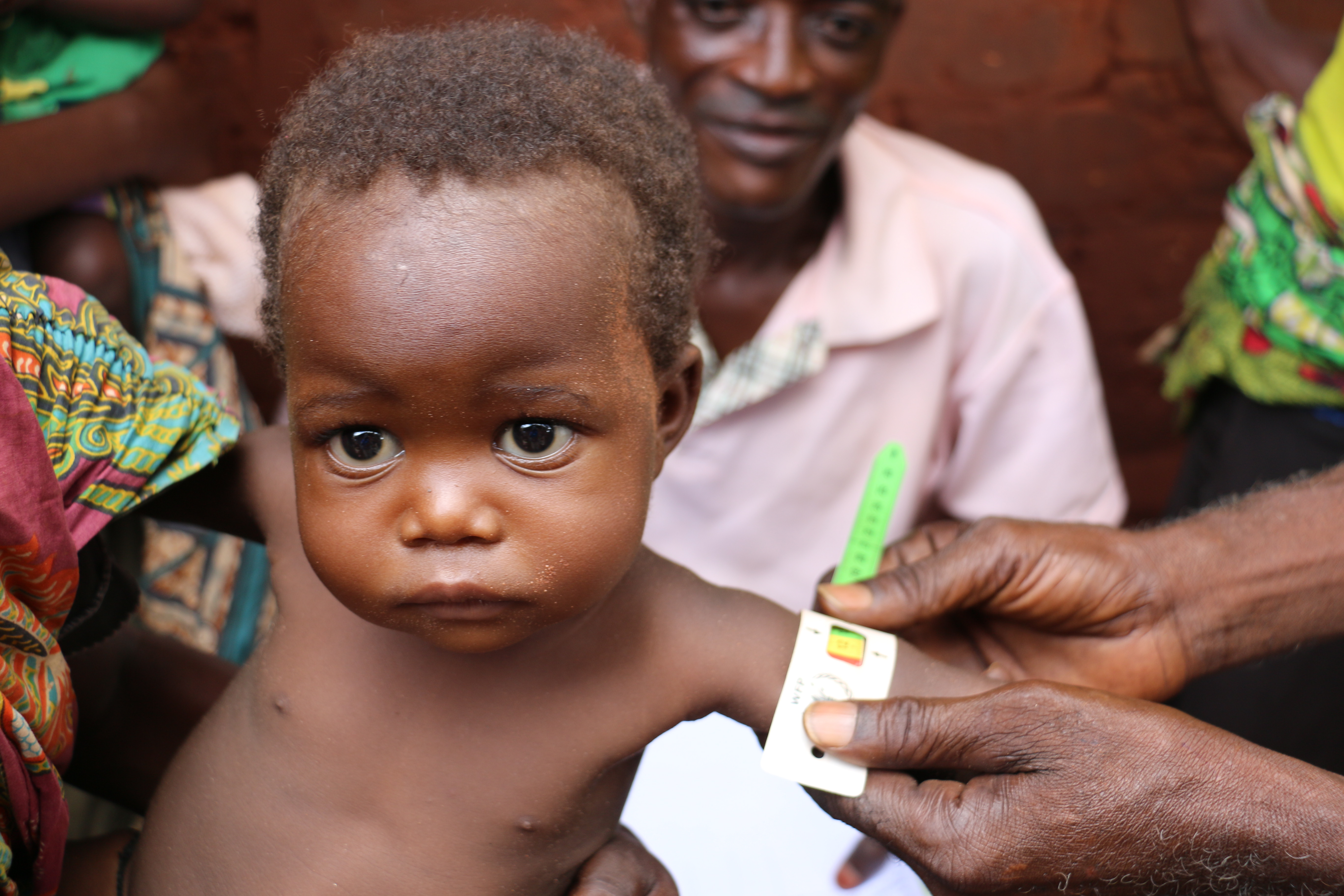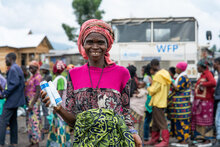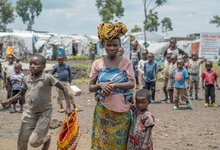WFP Broadens Operation to Stem Severe Hunger In Democratic Republic Of Congo's Kasai Region

Since the launch last week of the cash initiative – a cost-efficient alternative to in-kind support that allows beneficiaries to buy what they want in recovering local markets – 38,000 people have received the equivalent of US$15 each for a month, enough to meet their basic food needs. The intention is to more than double that reach in the coming weeks.
Recent airlifts from France of Plumpy’Sup, a micronutrient-rich, ready-to-use supplementary food, have allowed WFP to treat 9,000 malnourished children in January. By mid-year, we hope to treat at least ten times as many every month.
“The nutrition and cash programmes are life-saving, and must quickly expand”, said Claude Jibidar, WFP’s Representative in DRC. “We’re not doing nearly as much as we could in Kasai because the obstacles are huge. But unless we collectively rise to the challenges, many more people, including the weakest women and children, will die”.
WFP launched its assistance programme following the eruption of brutal political and ethnic violence in mid-2016 that claimed countless lives, razed entire villages and forced hundreds of thousands of families from their homes. Assessments showed that 3.2 million people, a quarter of the region’s population of mostly subsistence farmers, were desperately short of food.
Without a prior presence in Kasai, between September and December last year WFP achieved a tenfold increase in the number of people receiving food rations, to 400,000. But lagging donations forced a heavy reliance on scarce internal funds, and a halving of those rations – of cereal, beans, vegetable oil and salt – in November.
Continued funding constraints, an upsurge in fighting between pro- and anti-government forces and a rapid, rainy season deterioration of the already poor road network saw the number receiving half-rations drop to 130,000 in January.
“That reversal has to be corrected, and quickly”, said Jibidar. “We’ve shown we have capacity to deliver, but to reach sufficient scale we need the fighting to stop and donors to step up”.
Limited funding is also a major challenge in the eastern DRC provinces of Tanganyika and South Kivu, where WFP is scaling up to meet the needs of growing conflict-displaced populations as part of a broad push by UN agencies and NGOs.
# # #
WFP is the world's largest humanitarian agency fighting hunger worldwide, delivering food assistance in emergencies and working with communities to improve nutrition and build
resilience. Each year, WFP assists some 80 million people in around 80 countries.
Follow us on Twitter @wfp_media
For more information please contact (email address: firstname.lastname@wfp.org):
Claude Kalinga, WFP/Kinshasa, Mob. +243 81 700 6714
Jacques David, WFP/Goma, Mob. +243 81 700 6842
Gerald Bourke, WFP/Johannesburg, Tel. +27 11 517 1577, Mob. +27 82 908 1417
Steve Taravella, WFP/New York, Tel. +1-646-556-6909, Mob. +1-202-770-5993
Francis Mwanza, WFP/London, Tel. +44 20 3857 7411, Mob. +44 7968 008474
David Orr, WFP/Rome, Tel. +39 06 6513 3179, Mob. +39 340 246 6831
Challiss McDonough, WFP/Washington DC, Tel. +1-202-653-1149, Mob. +1-202-774-4026


